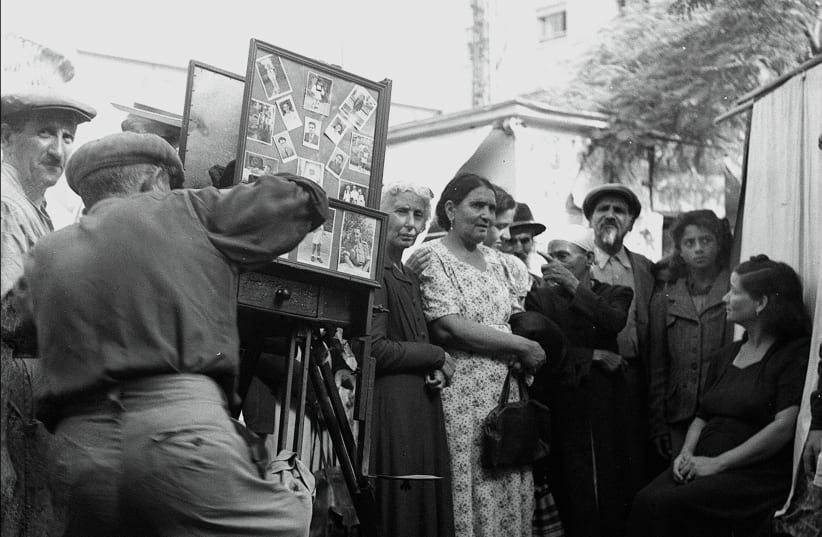Israelis today have shiny biometric passports, but those from the nascent Jewish state in the 1950s were hand-written and issued well before computers existed; they were also marked in French: “Valid to any country except Germany.”
Israelis who wanted to visit Germany had to file a request. That condition was then deleted by an official drawing a line through the words.
After the Reparations Agreement was signed between Israel and West Germany in 1952, the passports became valid for travel to all countries.
The history of travel documents in Israel
What about travel documents for those living in Mandatory Palestine before and after May 14, 1948? Beginning almost a century ago, Jews and Arabs who lived in the land were able to acquire a Palestine passport issued by Britain. These were valid for two years only, and the text was written in Hebrew and French.
The first Mandatory Palestine passport was issued in 1925 to Pinhas Rutenberg (1879–1942), a Russian Jewish engineer who went on to build the mandate’s First Jordan Hydro-Electric Power House aka Rutenberg Power Station or Naharayim Power Station at the confluence of the Jordan and Yarmuk Rivers. This dammed hydroelectric power station operated from 1932-1948 in Jordan (then, Imarat Sharq al-Urdun, the Emirate of Transjordan, a British protectorate from 1921-1946), supplying power to Mandatory Palestine.
When the British Mandate of Palestine ended on May 15, 1948, the State of Israel began issuing travel documents with an initial validity of two years – and printed and filled out in Hebrew and French – until the Knesset passed the Israeli nationality law in 1952.
Thereafter, the first Israeli passport issued was in the name of Golda Meir, who at the time worked for the Jewish Agency and was soon to become Israel’s ambassador to the Union of Soviet Socialist Republics (USSR), aka the Soviet Union.

